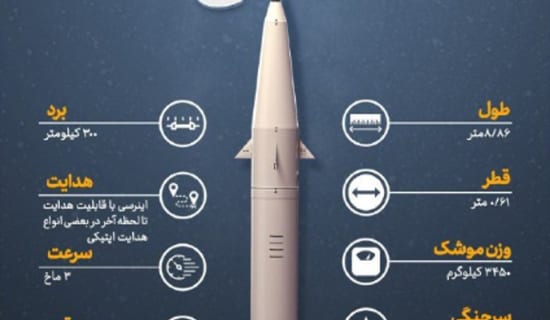The London Arabic-language daily Al-Sharq Al-Awsat reported on what it described as the real reason for the detention of the sailors of British vessels captured in Iranian waters. The following is the article: [1]
'The Real Reasons and Factors in the Apprehension of the British Navy Vessels'
"A source close to the [Iranian] Revolutionary Guards told Al-Sharq Al-Awsat of the real reasons and factors in the apprehension of the three British Navy vessels and the arrest of the sailors by Iranian Coast Guard patrol forces on Monday [June 21, 2004]. He indicated that the British Army command in Iraq had understood the message sent them by the Iranian Revolutionary Guards command by their capture of the ships."
'Detention of 40 Volunteers for Suicide Operations Was Great Concern to the Revolutionary Guards'
"According to the source, the content of the message was very simple: 'Release our comrades, whom you are holding, and we will release your soldiers.' The source clarified that the detention of 40 volunteers for suicide operations by the Ukrainian forces acting in Iraq was of great concern to the Revolutionary Guards command, because they [the 40] constituted the first group of volunteers participating in the Organization for the Commemoration of the Shahids, which was established recently by Revolutionary Guards Commander Col. Dhu al-Qadr.
"Al-Sharq Al-Awsat was informed that one of the senior leaders of the Revolutionary Guards, who had formerly held the post of head of the Committee for Iran-Ukraine Military Cooperation, had gone to Kiev for talks regarding the Iranian detainees. However, it turned out that the Ukrainian units had already handed the volunteers for suicide operations over to British forces acting in southern Iraq.
"Despite contacts between the Iranian and British military committees at the borders and daily contact between them in small conflict resolution - [such that] this has become routine since the British forces entered southern Iraq - the British command has so far refused to acknowledge that it is holding 40 Iranian volunteers in one of its detention camps. According to the Iranian source, this caused the Revolutionary Guards leadership to seek a semi-military solution to bring its men back from Iraq."
A Major Problem for President Khatemi
"The seizure of the British vessels is of great concern to the president of the [Iranian] Republic Muhammad Khatemi, because foreign relations is the only area that remains in his control, following the harmful reduction of his powers by Iranian Leader Ali Khamenei and other elements connected to him.
"Based on statements by a former reformist MP, the aim of Khatemi's policy was to reduce the tensions with the outside world; his achievements in establishing good relations with the neighboring countries, the European Union countries, and the Arab world provided him a large measure of independence.
"Iranian Leader [Ali Khamenei] and the conservatives had always sensed the importance of Khatemi's role in distancing the threats and dangers lying in wait for them, and therefore they had left the sphere of foreign relations to Khatemi.
"However, the picture has begun to change since the recent parliamentary elections [in Iran], when the Guardian Council banned or prevented the participation of more than 2,800 reformist candidates in the elections [to the seventh Majlis], in order to prevent a repeat of what happened four years ago when the reformists obtained full control of the Majlis. Similarly, 47 Revolutionary Guards officers entered the new parliament, and additionally a Revolutionary Guards colonel was appointed by Khamenei to head the Broadcasting and Television Authority. Also, Revolutionary Guards forces took over a Tehran airport, even though it had been opened by Khatemi, and conducted a campaign of arrests of reformists and student organization leaders on the eve of the anniversary of the July 1999 student uprising."
[1] Al-Sharq Al-Awsat ( London), June 23, 2004.








